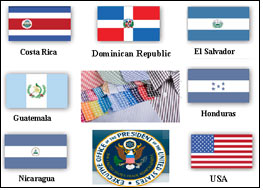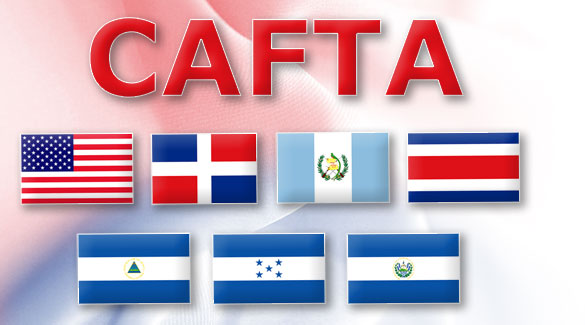Costa Rica News – Ex Comex members, Vinicio Ruiz and Alberto Trejos are promoting preventive preperation for a possible decision from Washington to renegotiate the Free Trade Agreement (FTA) between the United States, Central America and Dominican Republic (CAFTA).
 So far, Trump has not referred directly to this treaty, but has already said that it will manage the exit of the United States from the Transpacific Agreement (TPP) and warned that it will revise the North American Free Trade Agreement (NAFTA, in English).
So far, Trump has not referred directly to this treaty, but has already said that it will manage the exit of the United States from the Transpacific Agreement (TPP) and warned that it will revise the North American Free Trade Agreement (NAFTA, in English).
Despite considering not convenient announcing parts of the plan, Mora said that last week he was in the United States and Canada, where he met with businessmen, government representatives and congressmen to analyze the possible impact of this change.
More firm in a call to define a strategy are the ex ministries, Ruiz and Trejos. According to Ruiz, the country must go to friends in the United States and reactivate the support committee to the FTA, established when the approval of that agreement in Costa Rica was processed.
Ruiz stated that there is no need to wait and see what Trump says. “We need to activate approaches at the highest level, with friends who have some ex-presidents (of the Republican) in the United States.”
Trejos thinks that this strategy should not only be local, but implemented at regional level. The commercial strategy of Central America was lost a bit and he does not see which country would be able to take the lead in a possible renegotiation.
Both the minister and the ex-ministers coincided with the ex vice minister of Comex, Fernando Ocampo, in that the conditions for possible modifications in the FTA are not clear.
In all cases, it is considered that investments could be affected by the initiative of Trump to reduce the tax on the income to companies that return to the United States.
In the trade issue, Costa Rica is in the second or third line for Americans, so there is still nothing to announce about assumptions, said Minister Mora.
Meanwhile, some industries like dairy farmers consider it convenient to renegotiate the FTA, since they hope to “improve the conditions” agreed upon. Sectors like this and oil had 10 years of grace, plus another 10 years to eliminate tariffs. That last term began in 2016.
The president of the National Chamber of Agriculture and Agroindustry, Juan Rafael Lizano seemed more cautious and who called to review what should be given in exchange for that renegotiation.
By Brenda Sotelo

